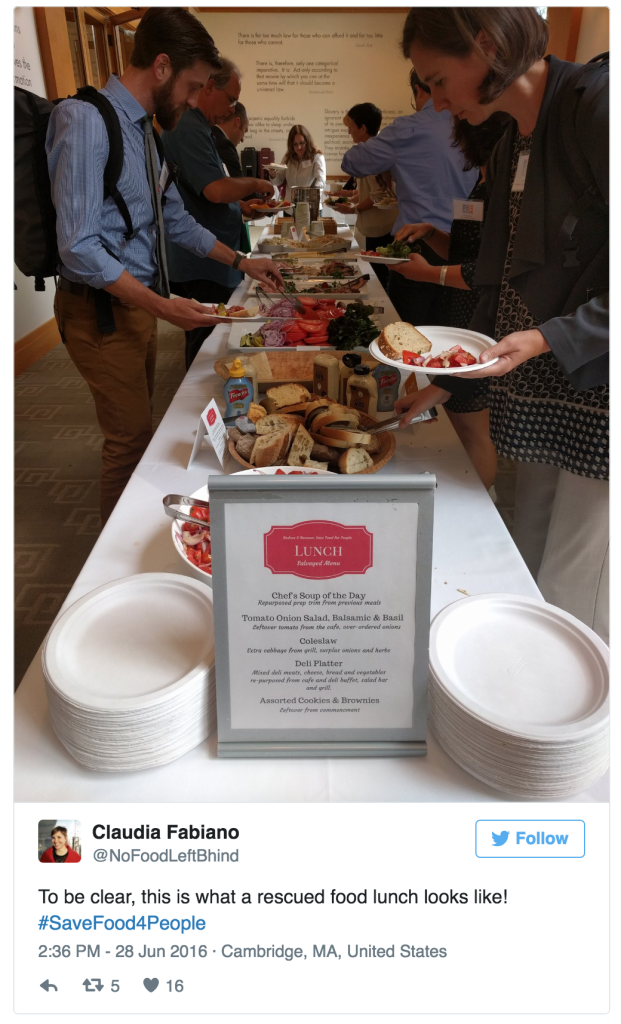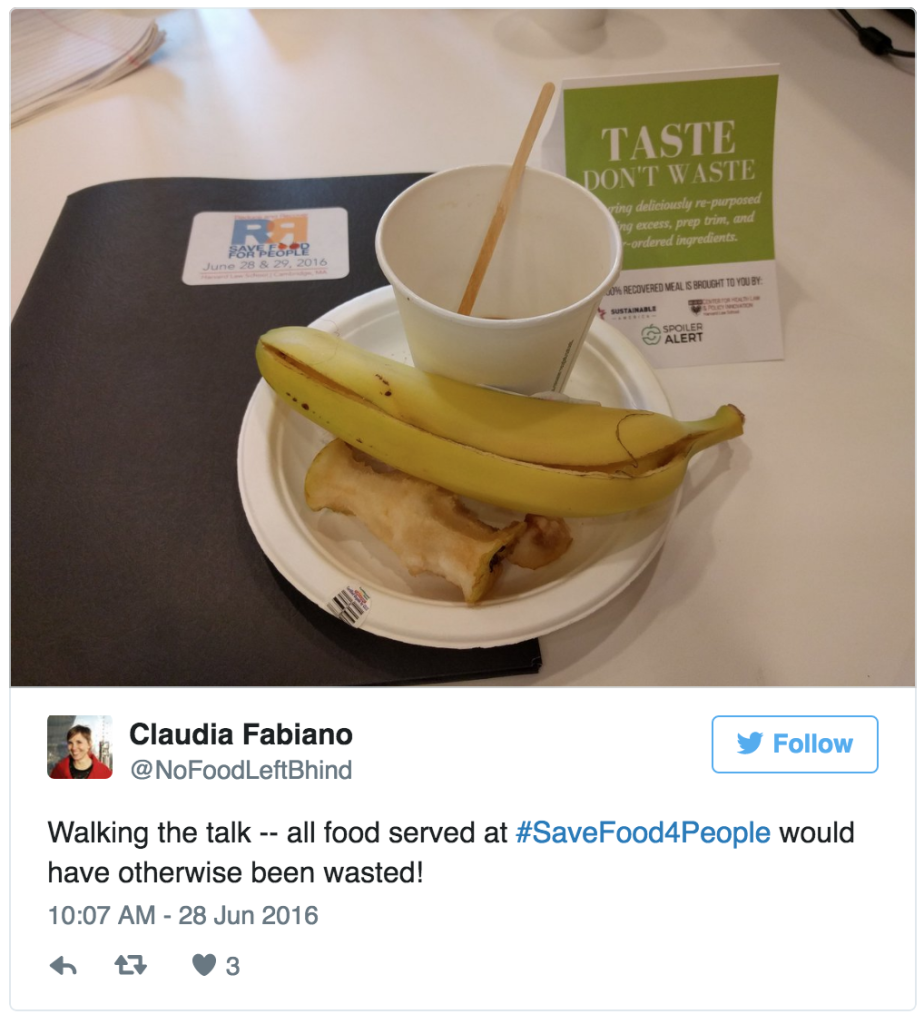Originally published on Sustainable America’s blog and written by Katrina Kazda

A rescued-food breakfast at the Save Food for People Conference
In late June, nearly 350 entrepreneurs, practitioners, policymakers, and activists from across the country gathered at Harvard Law School for the Reduce and Recover: Save Food for People Conference to further dialogue on reaching a national food waste reduction goal of 50% by 2030 as set by the U.S. Environmental Protection Agency (EPA) and the U.S. Department of Agriculture.
True to its name, the conference wanted to turn the conversation into action by “eating what we preach,” as Emily Broad Leib, director of the Harvard Food Law and Policy Clinic, put it. So, as the conference was being planned, Sustainable America worked with Harvard’s catering vendor, Restaurant Associates, to see what it would take to prepare some of the meals with food that would otherwise go to waste.
We’re happy to report that almost all of the meals served at the conference — nearly 1,000 meals in total— were prepared from rescued food.
 A few examples of menu items include a Caesar salad made using lettuce from Sid Wainer & Sons Imperfectly Delicious Produce program and day-old-bread croutons. A chef’s soup of the day was made from vegetable trim. A fresh tomato and onion salad was prepared from leftover tomatoes from the law school’s cafe and over-ordered onions; desserts were saved from recent commencement celebrations.
A few examples of menu items include a Caesar salad made using lettuce from Sid Wainer & Sons Imperfectly Delicious Produce program and day-old-bread croutons. A chef’s soup of the day was made from vegetable trim. A fresh tomato and onion salad was prepared from leftover tomatoes from the law school’s cafe and over-ordered onions; desserts were saved from recent commencement celebrations.
Boston-based Spoiler Alert, a tech platform that helps businesses manage surplus food and reduce food waste, helped source excess food — breads, fruits and yogurt — for breakfast from local companies Boston Organics, Daily Table and Iggy’s Bread of the World.
View image on Twitter

Each meal represented the variety and breadth of wasted food in our nation’s food system—from over-ordering and over-processing to farm seconds and prep trim. The food was extremely well received by conference attendees. They were thrilled with the quality, variety and flavor and were happy to be walking the walk as they talked the talk on wasted food. To continue the effort, Harvard Food Law and Policy Clinic staff are now hoping to work with the school’s administration to establish an ongoing food donation program to feed the hungry.
Convened by the Harvard Food Law and Policy Clinic, EPA,Massachusetts Department of Environmental Protection, andRecyclingWorks Massachusetts, the conference focused on the top two tiers of EPA’s Food Recovery Hierarchy: “source reduction” and “feed hungry people.” Speakers highlighted innovative solutions from New England and across the nation to reduce wasted food and recover edible food for people.
View image on Twitter



Health Law & Policy, Commentary
Braidwood Management v. Becerra: Updated FAQs for Health Advocates and Providers
July 22, 2024